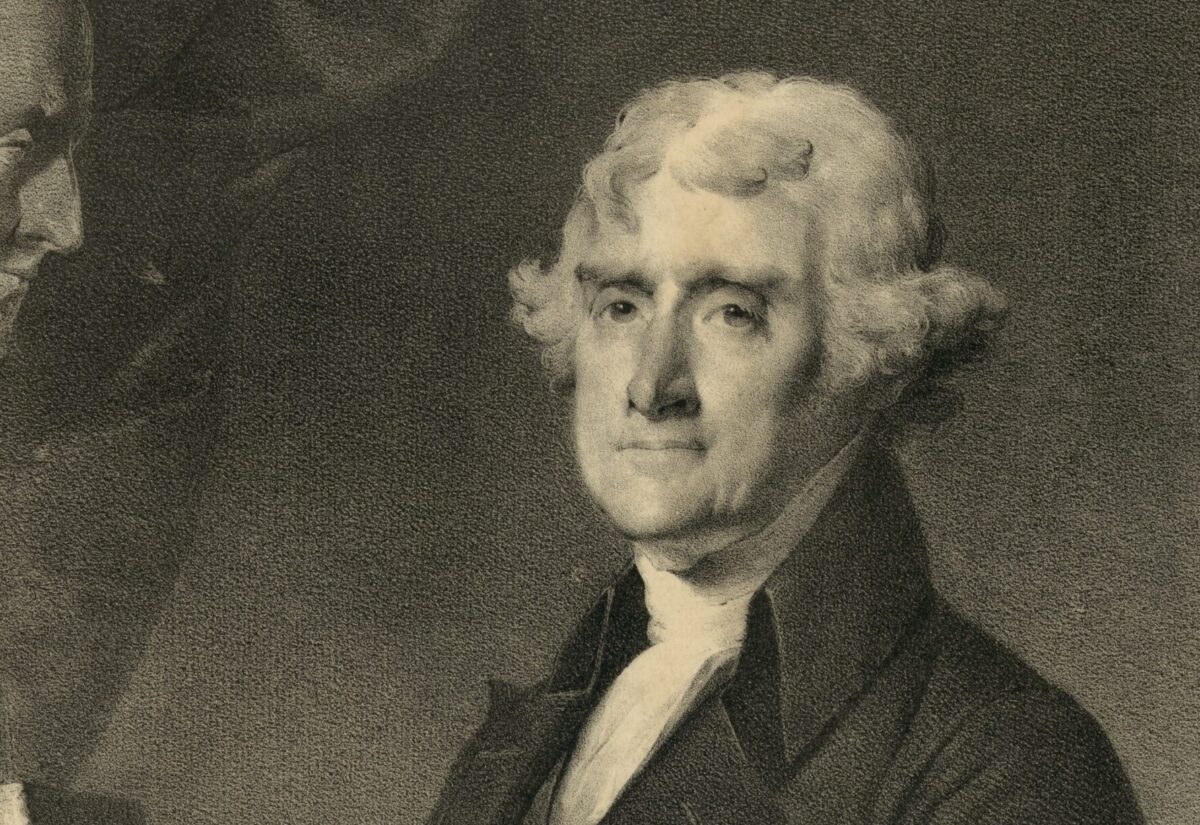 Unsplash/Library of Congress
Unsplash/Library of CongressHistory often remembers geniuses for their breakthroughs—their scientific discoveries, their artistic masterpieces, their revolutionary inventions. But intelligence doesn’t always go hand in hand with morality. Some of the most celebrated minds in history had deeply troubling personal lives or committed acts that, by today’s standards, are impossible to overlook. From cruelty and exploitation to outright criminality, here are historical geniuses whose darker sides history can’t ignore.
Thomas Edison exploited workers and sabotaged rivals.
Thomas Edison is celebrated for inventing the light bulb and revolutionising modern life, but his behaviour off the record was far from admirable. He was known for taking credit for the work of employees and competitors, especially Nikola Tesla. Edison also led smear campaigns, including a brutal PR war against alternating current, which Tesla and Westinghouse supported. In one notorious instance, Edison electrocuted animals—most famously an elephant named Topsy—as part of a public stunt to discredit AC power. His aggressive business tactics and obsession with fame often overshadowed any spirit of scientific collaboration.
Pablo Picasso treated women appallingly.
Picasso’s name is synonymous with artistic genius, but his relationships were riddled with emotional cruelty. He was openly manipulative and dismissive toward his partners and muses, many of whom suffered severe emotional distress. Picasso is quoted as saying, “There are only two kinds of women: goddesses and doormats.” His muses included women much younger than him, and he often discarded them after their influence on his work faded. Some, like Dora Maar, suffered breakdowns; others, like Marie-Thérèse Walter, ended their lives tragically. For all his talent, Picasso’s treatment of the women around him remains an ugly part of his legacy.
Wernher von Braun built rockets, and worked for the Nazis.
Wernher von Braun was a pioneer of rocket science and a key figure behind the American space programme. But before his NASA career, he was a member of the Nazi Party and an SS officer. He played a major role in developing the V-2 rocket, used to bomb Allied cities and built using forced labour from concentration camps like Dora-Mittelbau, where thousands died. After the war, he was brought to the U.S. under Operation Paperclip—a controversial programme that recruited former Nazi scientists. His brilliance in aerospace cannot be denied, but it was forged through a deeply compromised past.
Coco Chanel collaborated with the Nazis.
Coco Chanel revolutionised fashion and became a symbol of elegance and independence. However, her wartime activities are far more controversial. During the German occupation of France, she had a relationship with a high-ranking Nazi officer and allegedly used her connections to try to take over her former perfume business from her Jewish business partners. Declassified French intelligence files have confirmed that she was listed as a Nazi agent under the code name “Westminster.” Though she rebranded post-war with the help of powerful friends, her involvement with the regime casts a long shadow.
Isaac Newton was brilliant—and brutal.
Isaac Newton gave us calculus, modern physics, and the laws of motion—but he also had a darker, vengeful side. As Warden of the Royal Mint, he aggressively pursued counterfeiters, often personally interrogating suspects and pushing for their execution. He wasn’t above using spies and informants, and he once engineered the hanging of a forger named William Chaloner. Newton also feuded viciously with other scientists, notably Robert Hooke, whom he belittled and tried to erase from the historical record.
Richard Wagner’s genius fuelled anti-Semitism.
Wagner is one of the most influential composers in Western music, but his legacy is tainted by his virulent anti-Semitic views. His writings, including the infamous essay “Judaism in Music,” were openly hostile toward Jewish people and fed into later ideologies adopted by the Nazi regime—Adolf Hitler was a noted admirer. While Wagner’s music remains celebrated, performances of his work are still controversial, particularly in places like Israel. His ideas didn’t just stay on paper—they had dangerous cultural consequences.
Steve Jobs was brilliant, but harsh and exploitative.
Steve Jobs is often hailed as a visionary, but his genius came with a cost. Former colleagues and employees have described him as domineering, volatile, and at times, cruel. He publicly denied paternity of his daughter Lisa for years, despite overwhelming evidence. His management style at Apple was frequently toxic, and he was known for belittling staff and demanding unreasonable workloads. While his innovation shaped the tech world, his personal and professional behaviour left many wounded.
Aristotle justified slavery and sexism.
Aristotle shaped Western philosophy, but many of his ideas would be shocking today. He believed slavery was a natural and necessary part of society, arguing that some people were “slaves by nature.” He also promoted the idea that women were biologically inferior to men and should be ruled by them. His writings laid the groundwork for centuries of institutional inequality, even as they influenced science, politics, and ethics. His intellectual legacy is enormous—but it includes ideas that have justified oppression.
H. P. Lovecraft infused his writing with racism.
Lovecraft is celebrated as a master of horror fiction, but his worldview was shaped by deeply racist beliefs. His private letters and published works are filled with xenophobia, anti-Semitism, and white supremacist ideology. Some of his most famous stories portray non-white characters as monstrous or degenerate. Even his most famous creation, Cthulhu, draws from fears of “the other” invading Western civilisation. Though his work influenced countless authors, readers and critics continue to grapple with the bigotry that runs through it.
Thomas Jefferson owned slaves, and profited from them.
Thomas Jefferson is often hailed as a champion of liberty and the author of the Declaration of Independence, but his actions contradicted his ideals. He owned hundreds of slaves and profited from their labour. He fathered several children with Sally Hemings, an enslaved woman at Monticello, under circumstances widely regarded today as coercive. While he wrote eloquently about freedom and equality, he upheld and benefitted from a brutal system of bondage. His genius as a statesman and writer is undeniable, but his hypocrisy on human rights is impossible to ignore.
Ezra Pound supported fascism and Mussolini.
Ezra Pound is considered one of the most influential poets of the 20th century, but he also aligned himself closely with Italian fascism. During World War II, he broadcast propaganda radio speeches from Rome, praising Benito Mussolini and criticising Allied leaders in anti-Semitic, conspiratorial language. After the war, he was arrested for treason and held in a US military camp, where he suffered a mental breakdown. Though later institutionalised and eventually awarded prestigious literary honours, his political legacy remains deeply troubling.
James Watson made racist and sexist remarks.
James Watson, one of the co-discoverers of the structure of DNA, has repeatedly made offensive public statements about race, gender, and intelligence. He’s claimed that people of African descent are inherently less intelligent and has made derogatory remarks about women in science. These views have led to widespread condemnation, loss of honorary titles, and distancing from academic institutions. Despite his contribution to genetics, his legacy has been significantly overshadowed by his bigotry.
Caravaggio combined artistic brilliance with violent behaviour.
The Baroque painter Caravaggio was as notorious for his violent outbursts as he was famous for his revolutionary art. He killed a man in a street brawl, reportedly over a dispute involving a tennis match and a woman, and was known for his volatile temper and run-ins with the law. He fled Rome with a bounty on his head and continued to paint masterpieces while living as a fugitive. His art changed the course of painting—but his life was one of chaos, conflict, and brutality.
Genius doesn’t guarantee goodness. As history shows, brilliance and moral failure often exist side by side. These figures made lasting contributions to art, science, politics, and culture—but they also left behind legacies that are deeply complicated. Acknowledging their full stories doesn’t diminish their work, but it does offer a more honest picture of the people behind the reputations.



